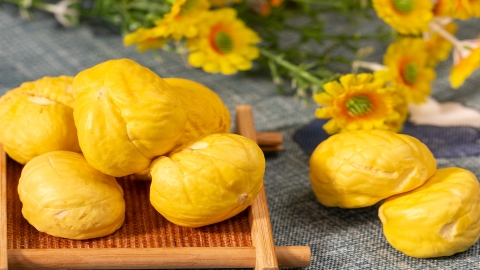Can chestnuts and kelp be eaten together?
Generally speaking, chestnuts and kelp can be consumed together. Details are as follows:

Chestnuts are rich in protein, vitamin B complex, and minerals, while kelp contains abundant iodine, calcium, and cellulose. When consumed together, they complement each other nutritionally, helping to enhance immunity and promote intestinal motility. For healthy individuals, moderate simultaneous consumption does not cause adverse reactions. For example, adding chestnuts and kelp to soup is both delicious and nutritious.
Both chestnuts and kelp are nutritious foods, but excessive consumption may lead to indigestion or other discomforts. Therefore, intake should be controlled to avoid overconsumption. Although chestnuts and kelp are generally suitable for most people, individuals with certain special constitutions, such as those with weak spleen and stomach, diabetes, or high blood lipid levels, may need to limit their intake or avoid them altogether. Additionally, individuals allergic to chestnuts or kelp should avoid consumption.
In daily life, maintaining a balanced diet and avoiding excessive consumption of a single food type is recommended. Furthermore, increasing appropriate physical activity can enhance the body's metabolic level and contribute to overall health.








